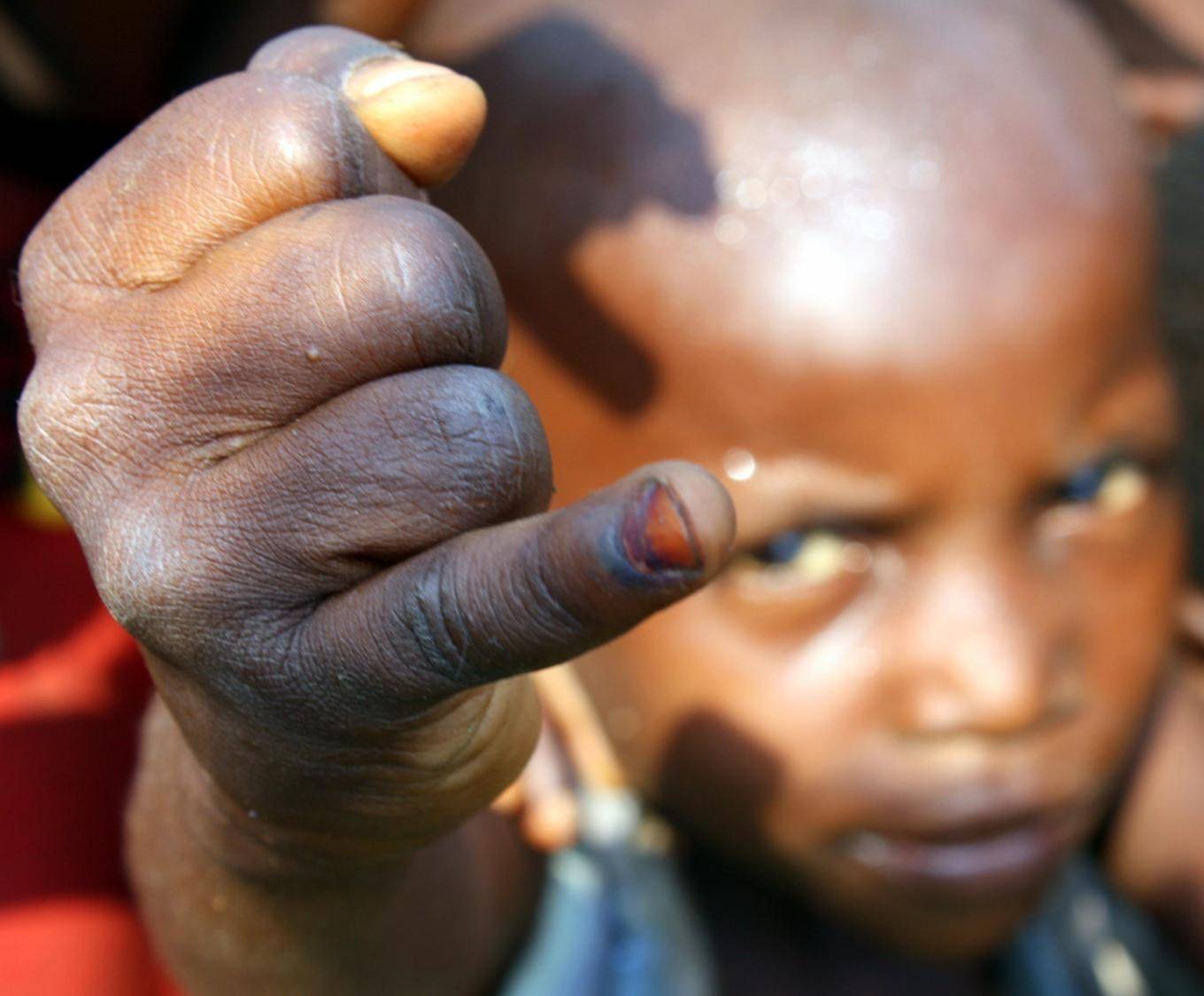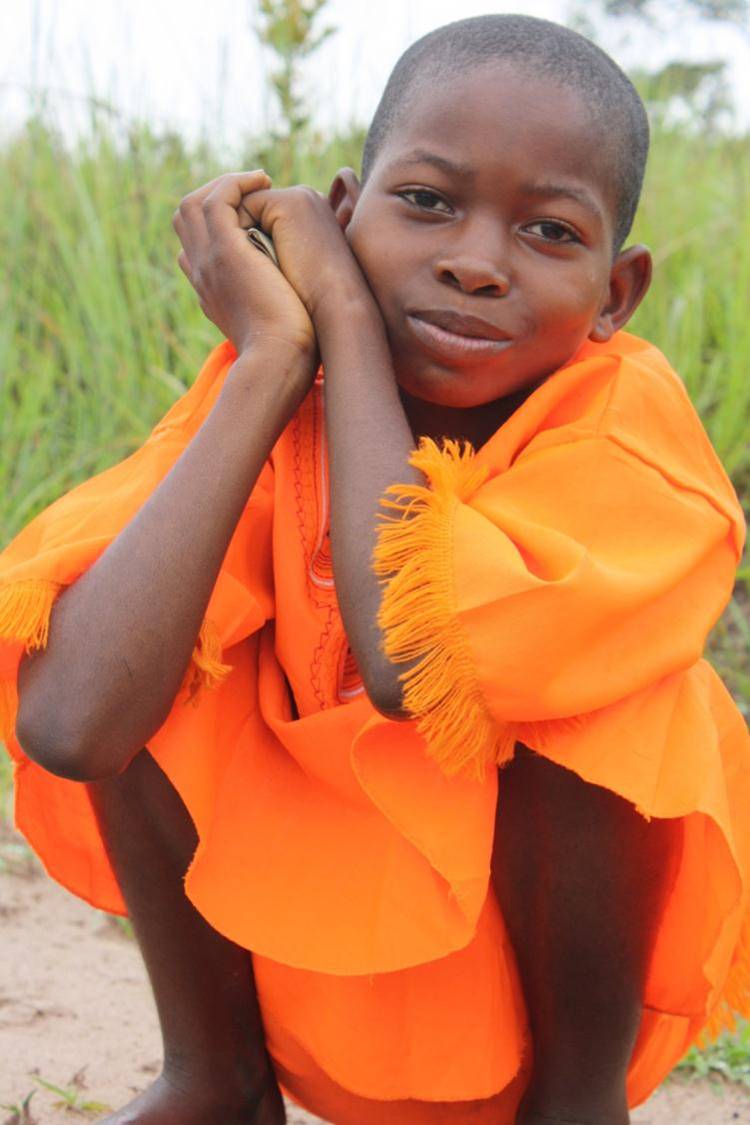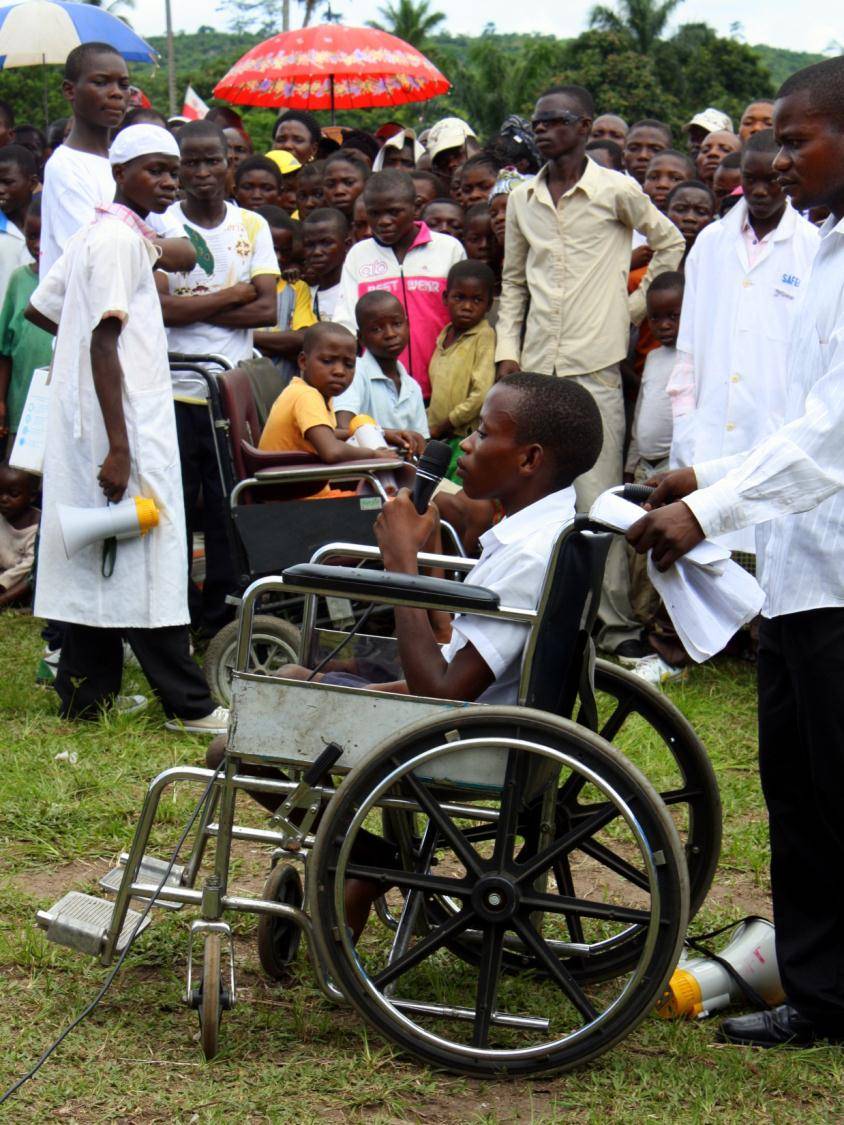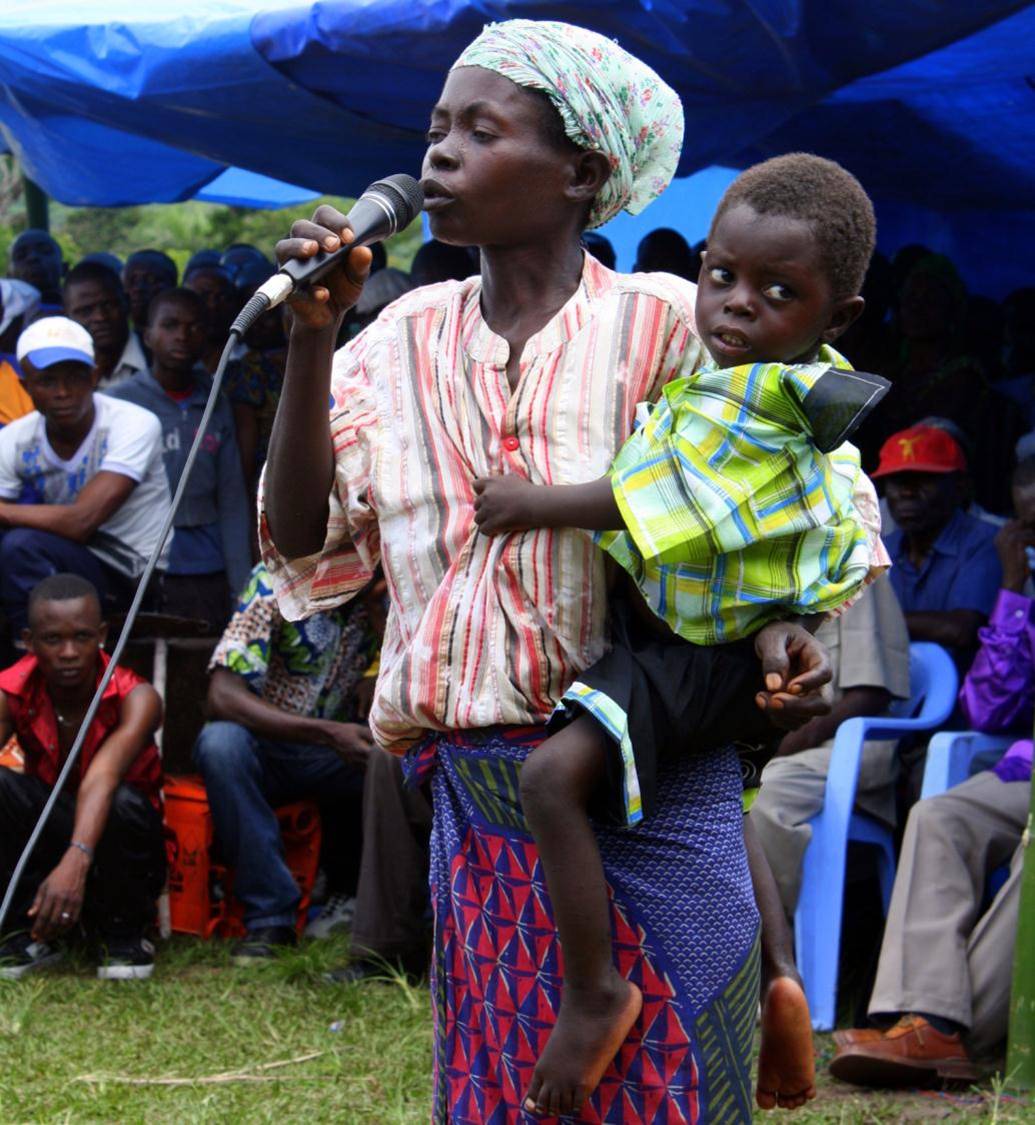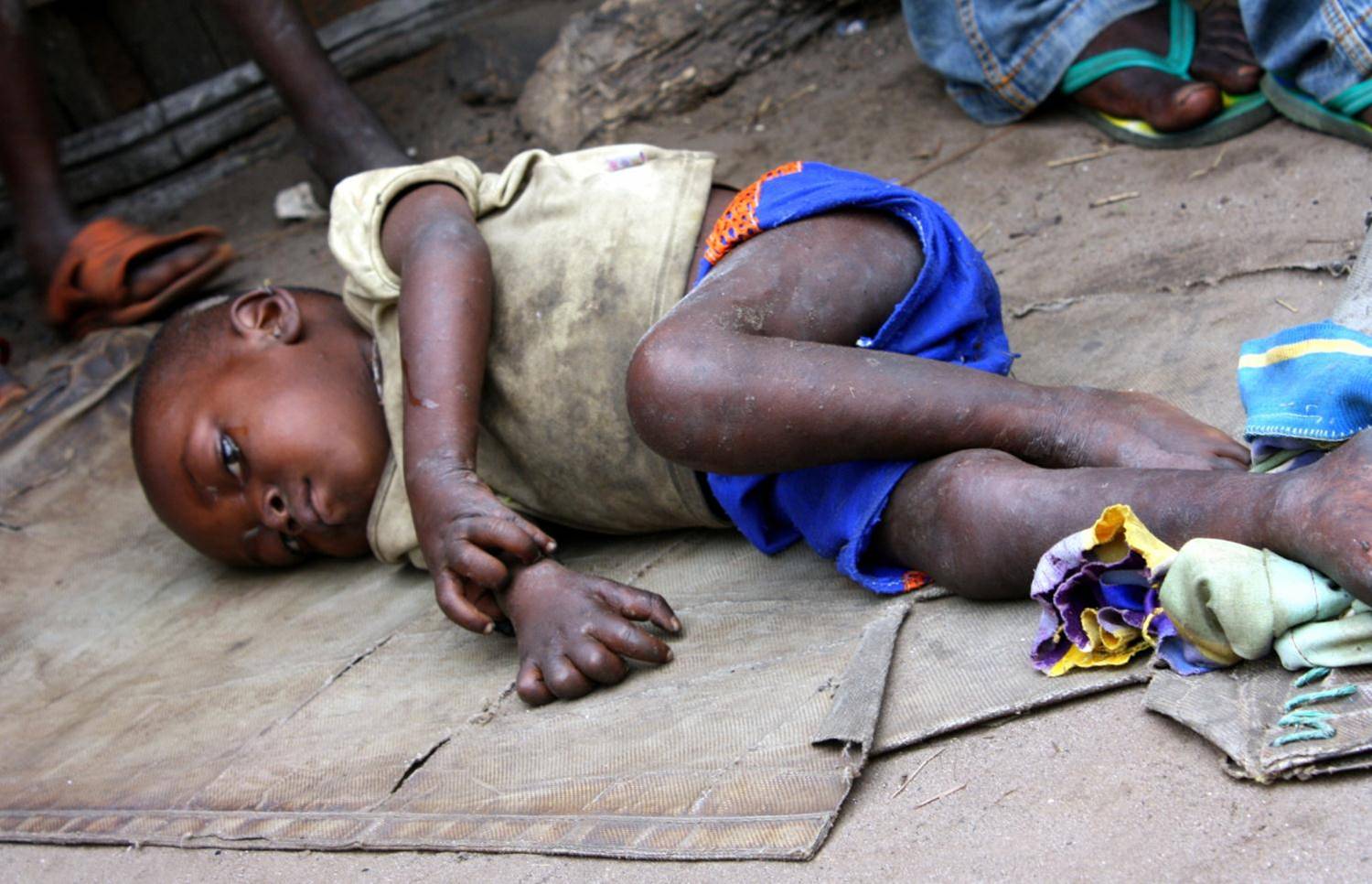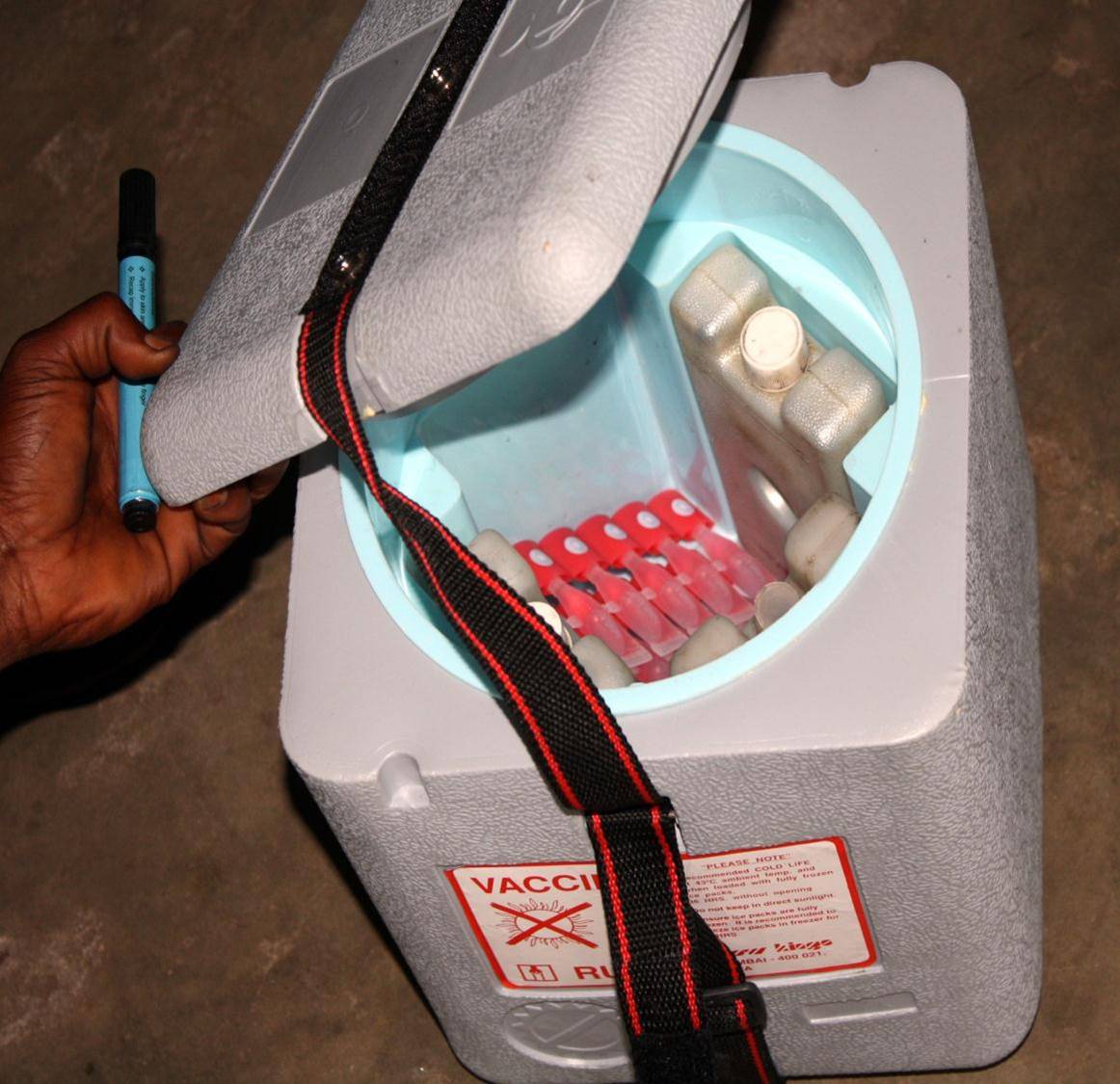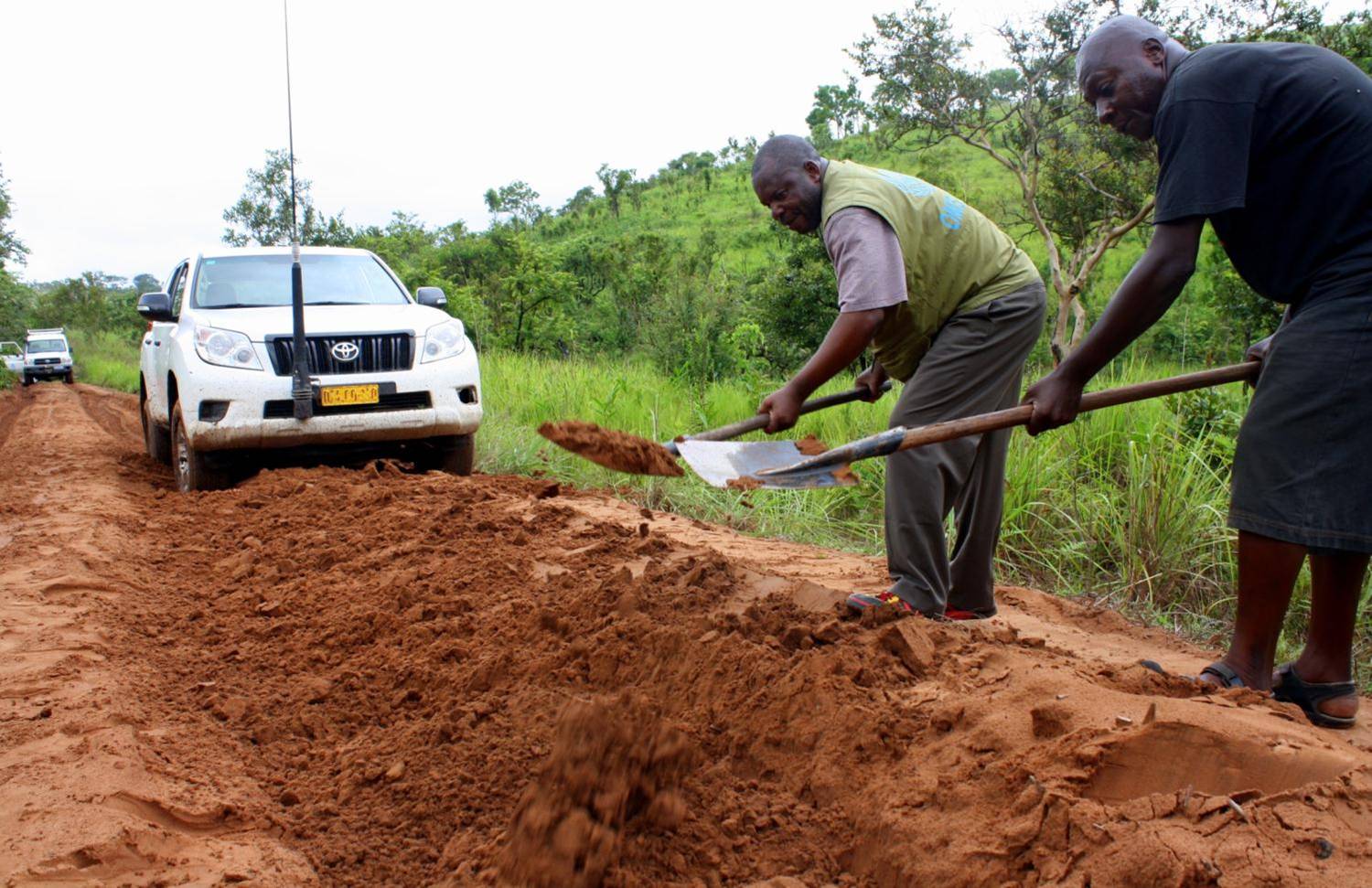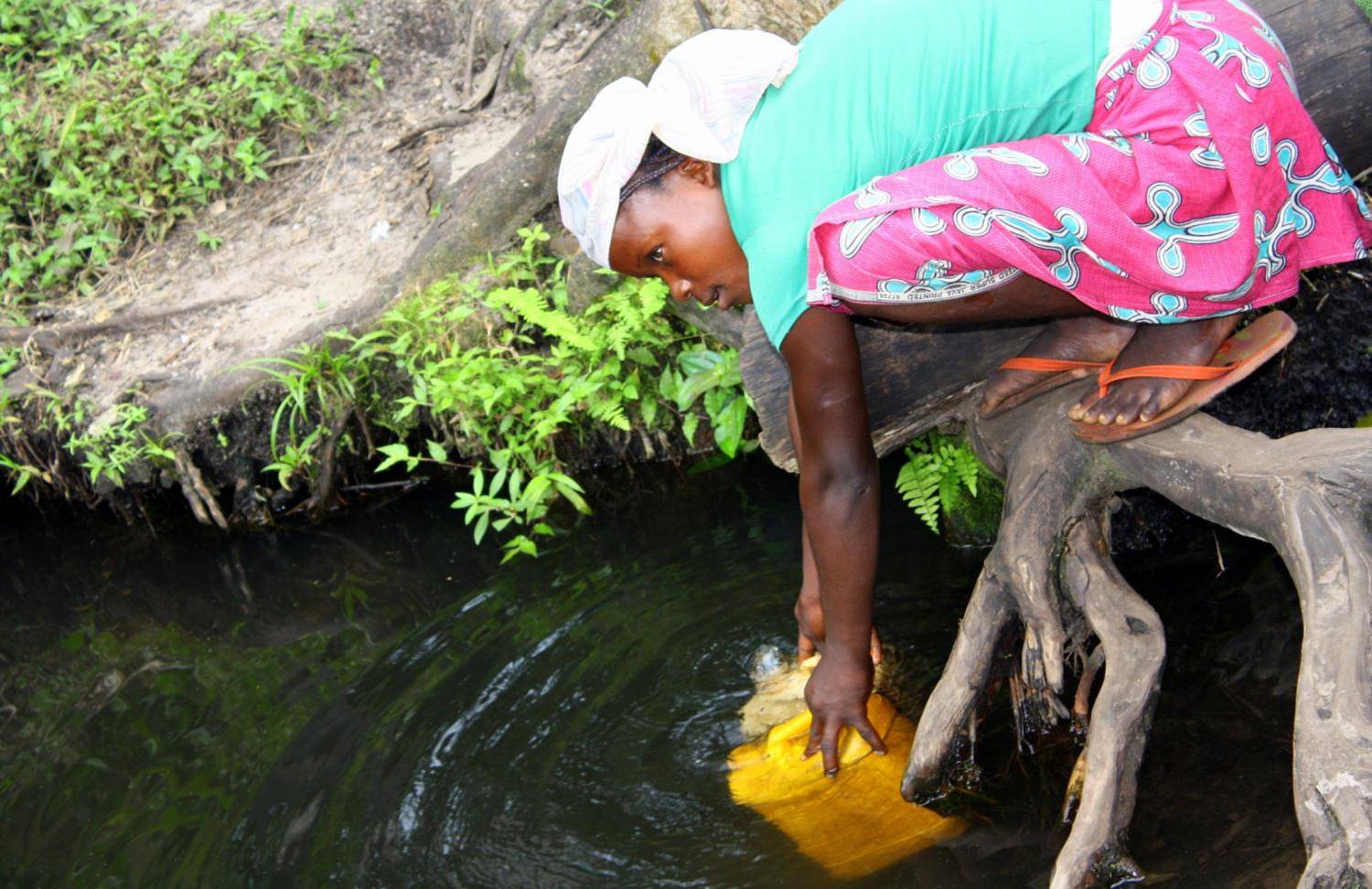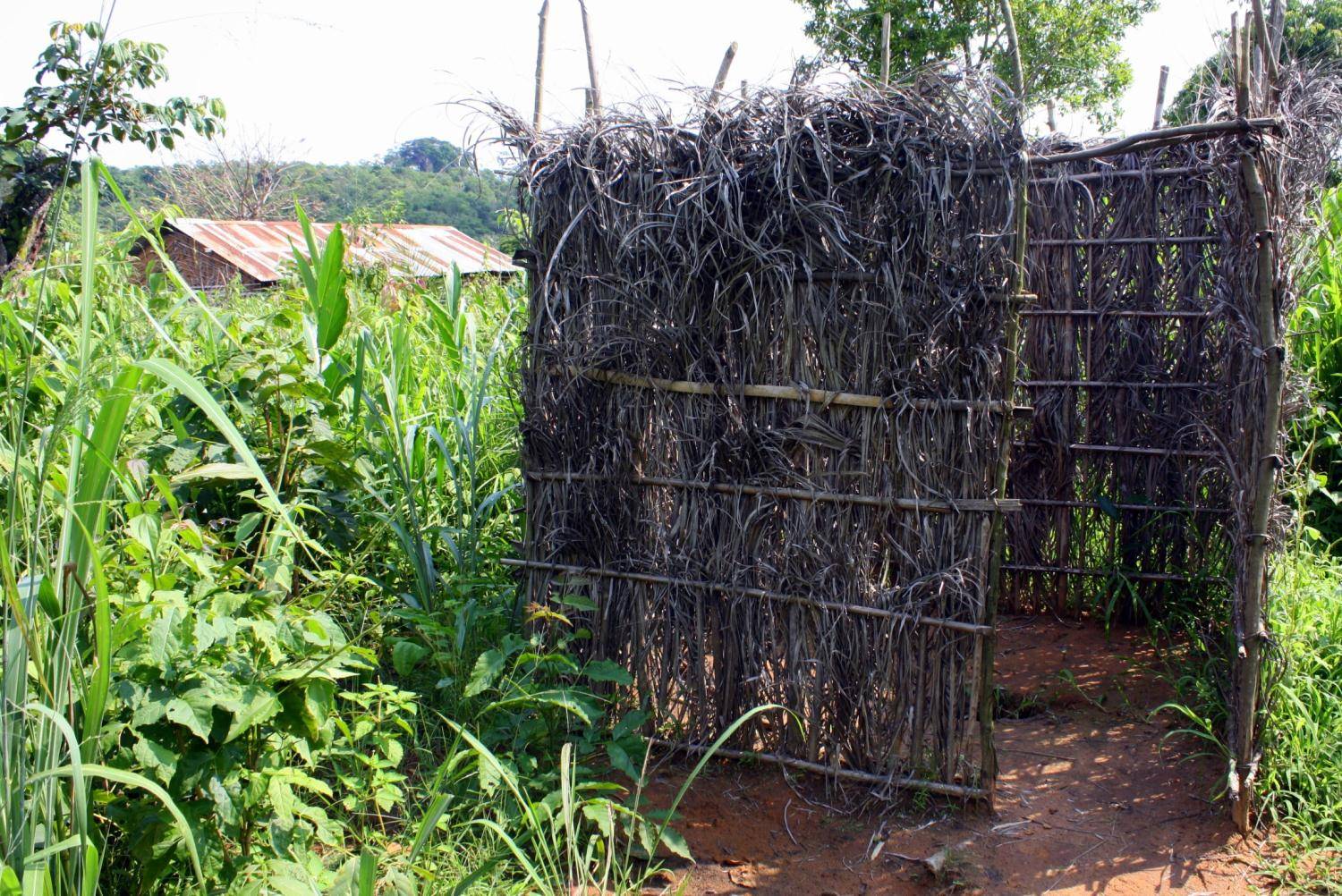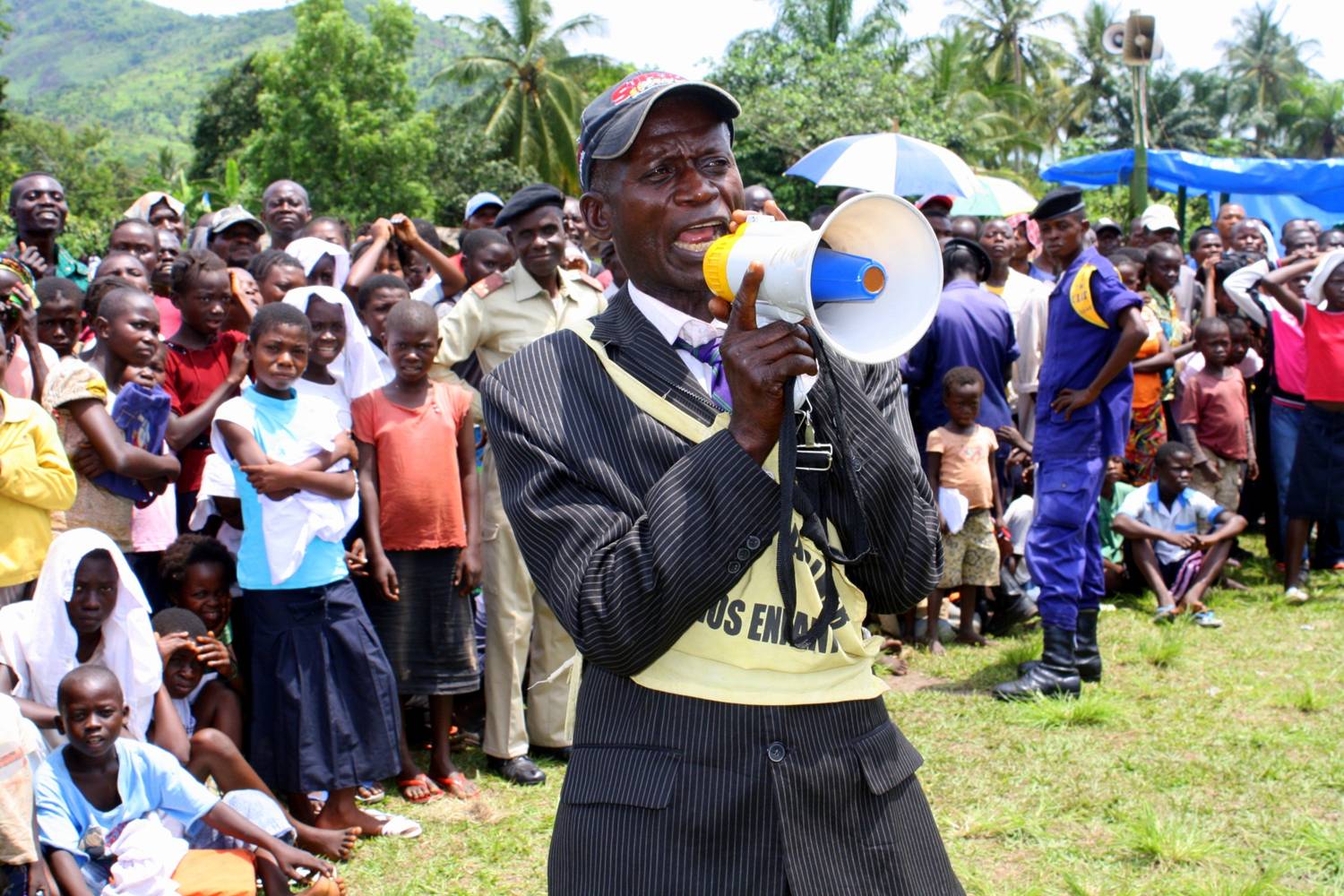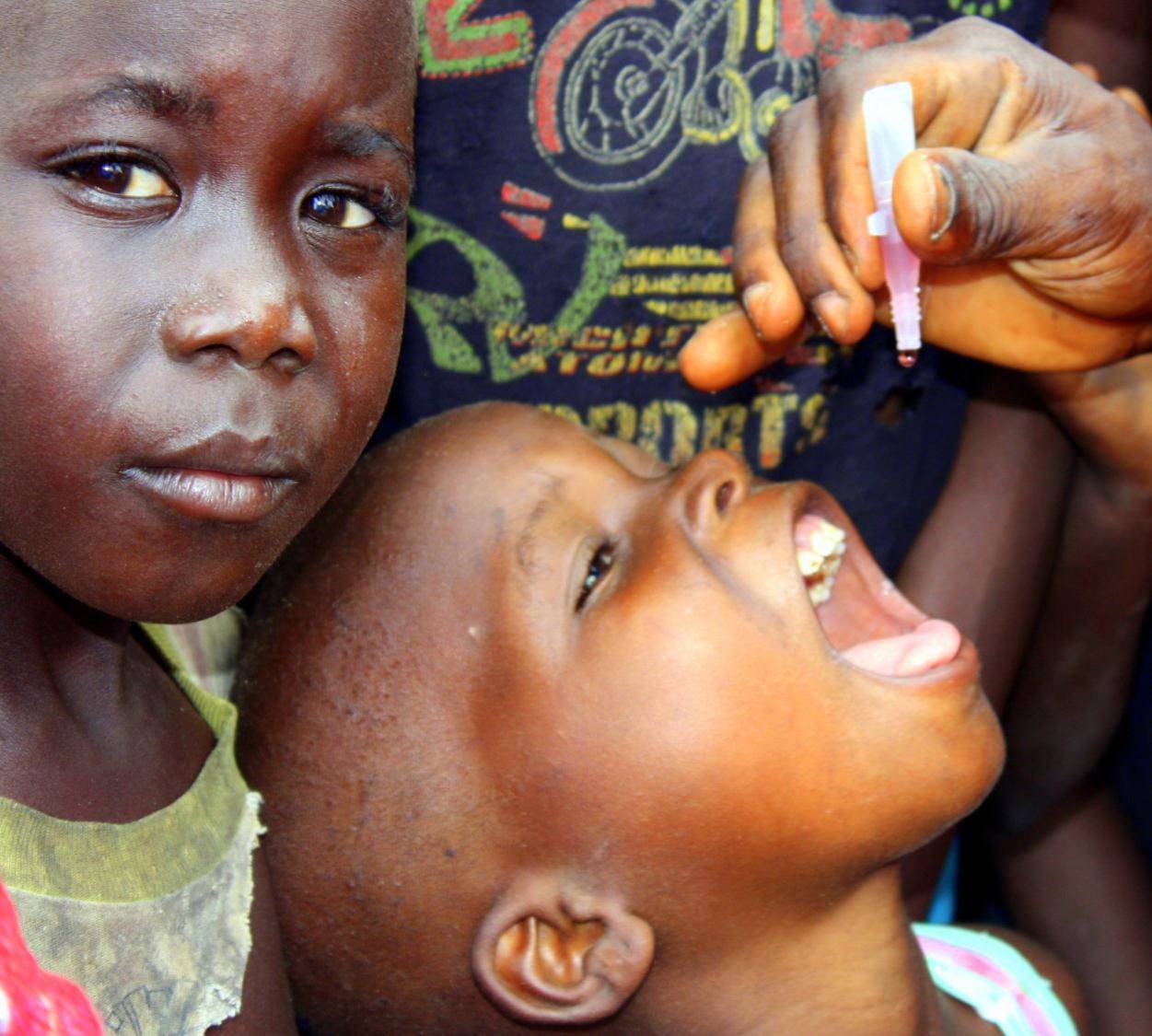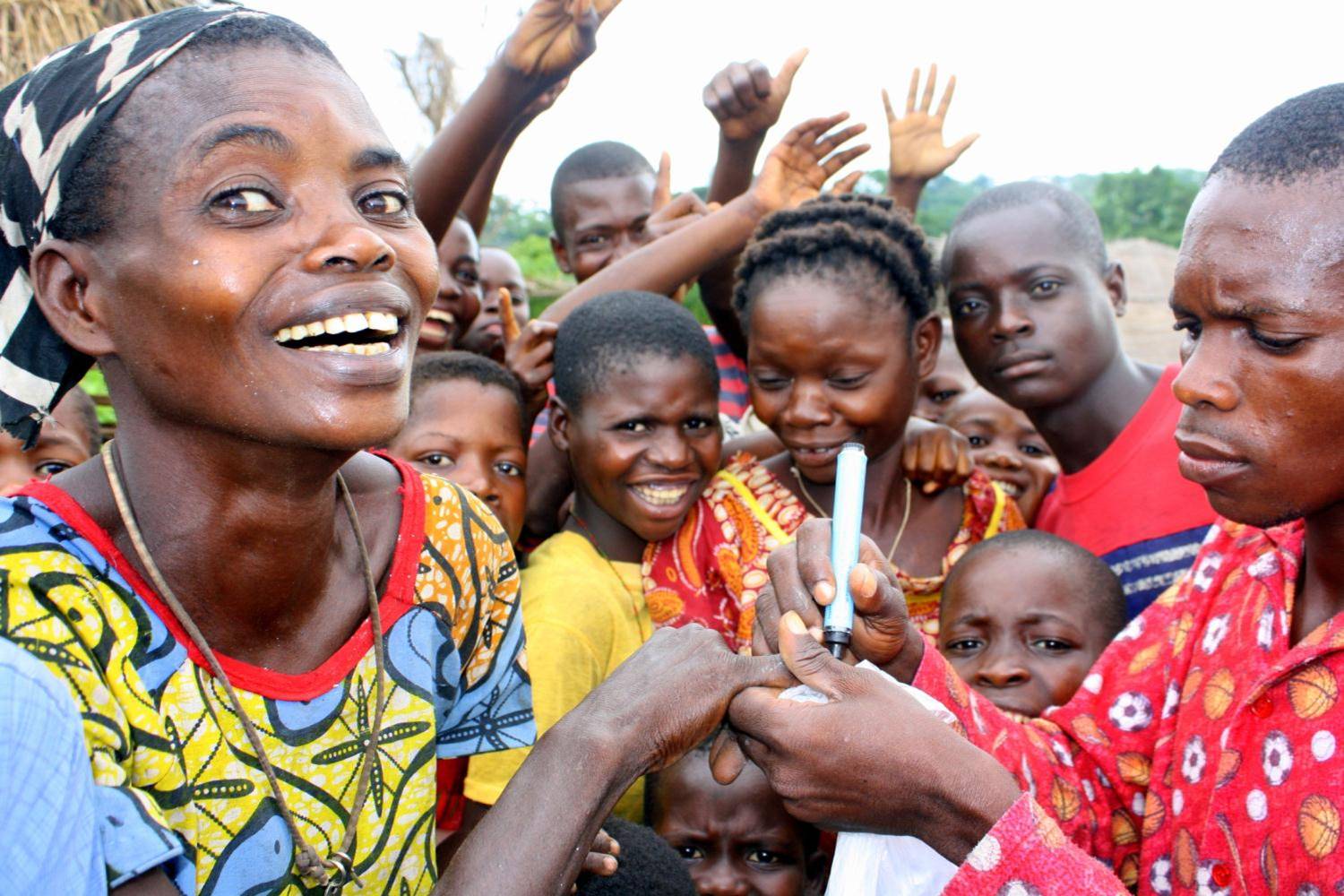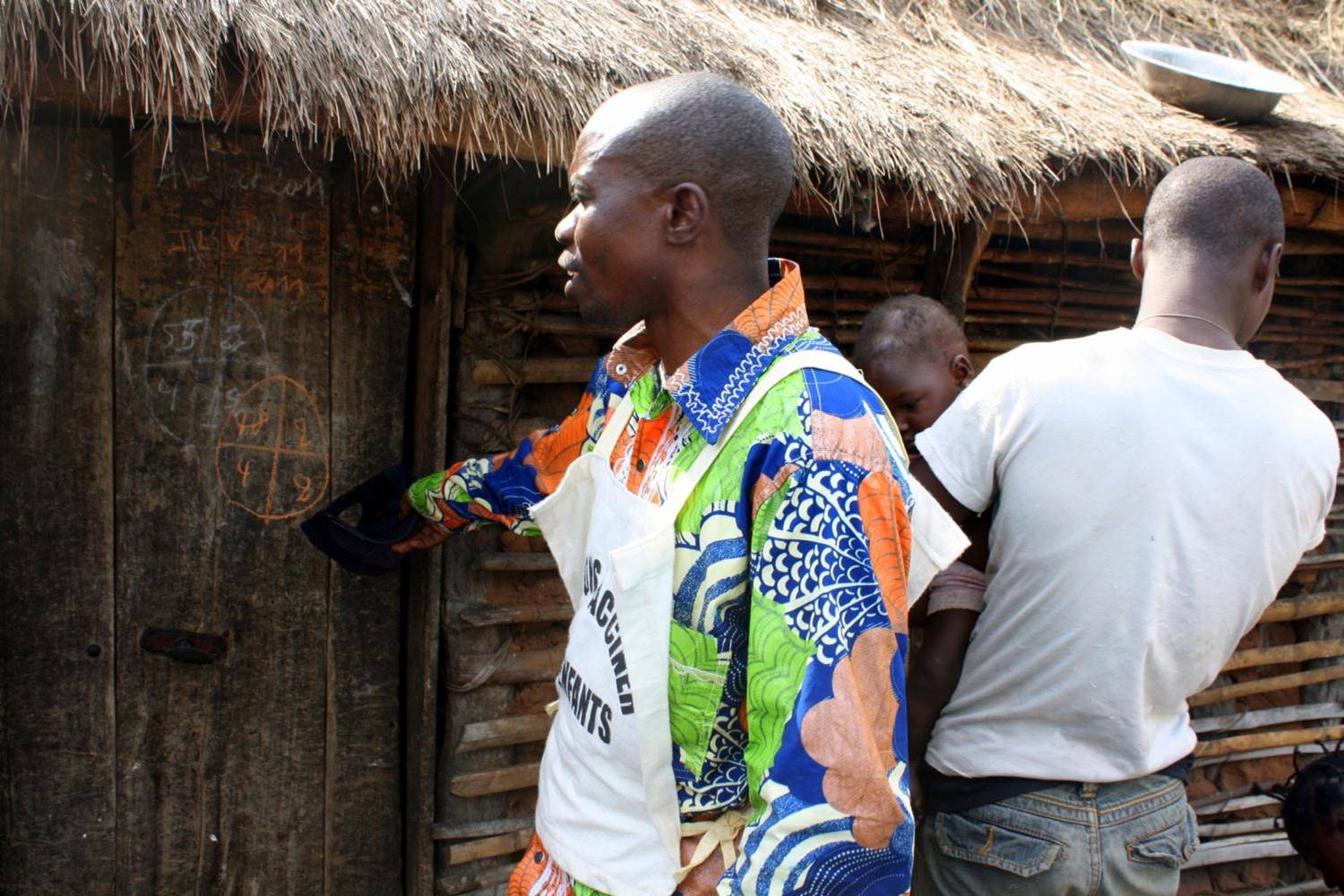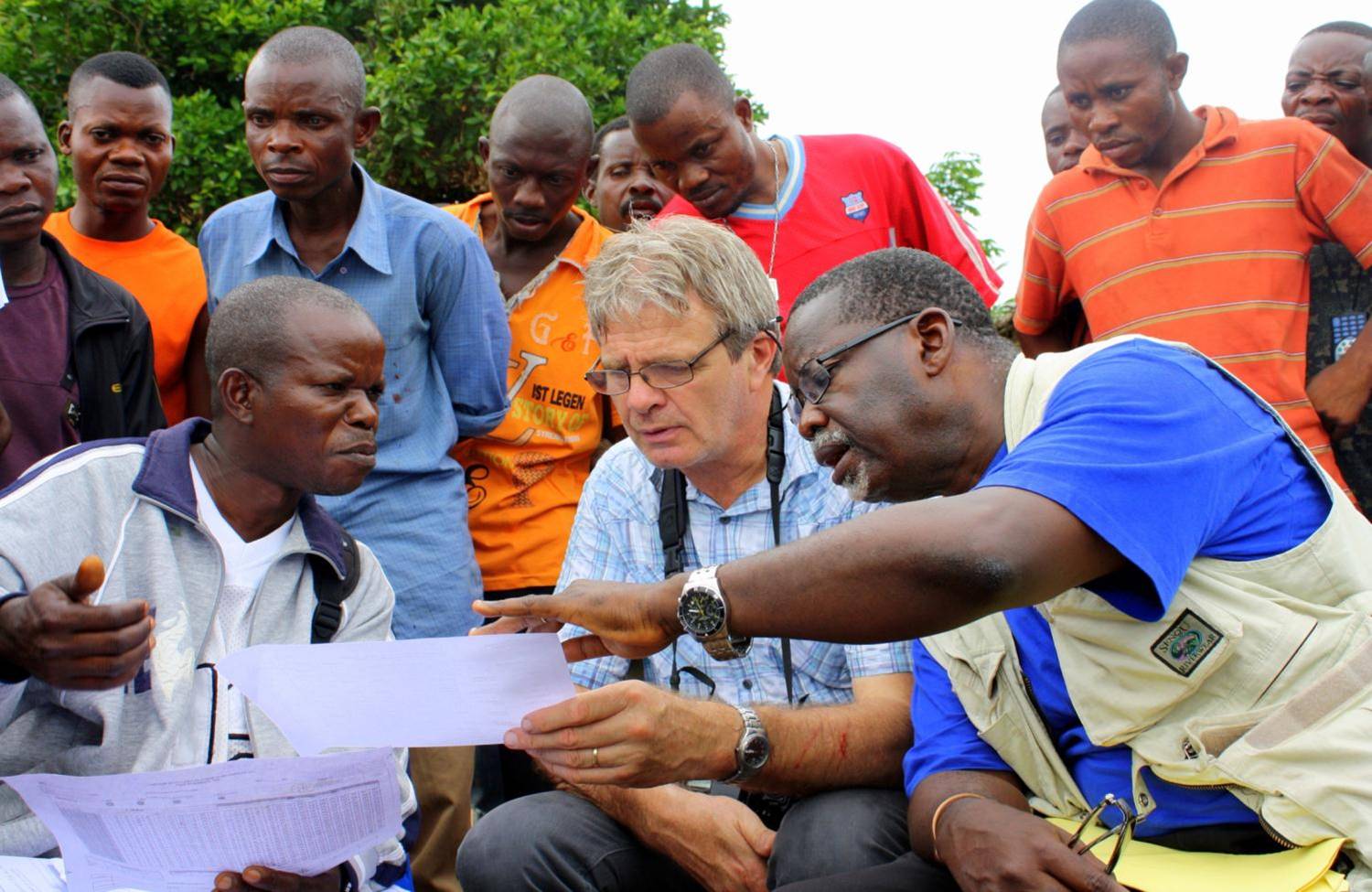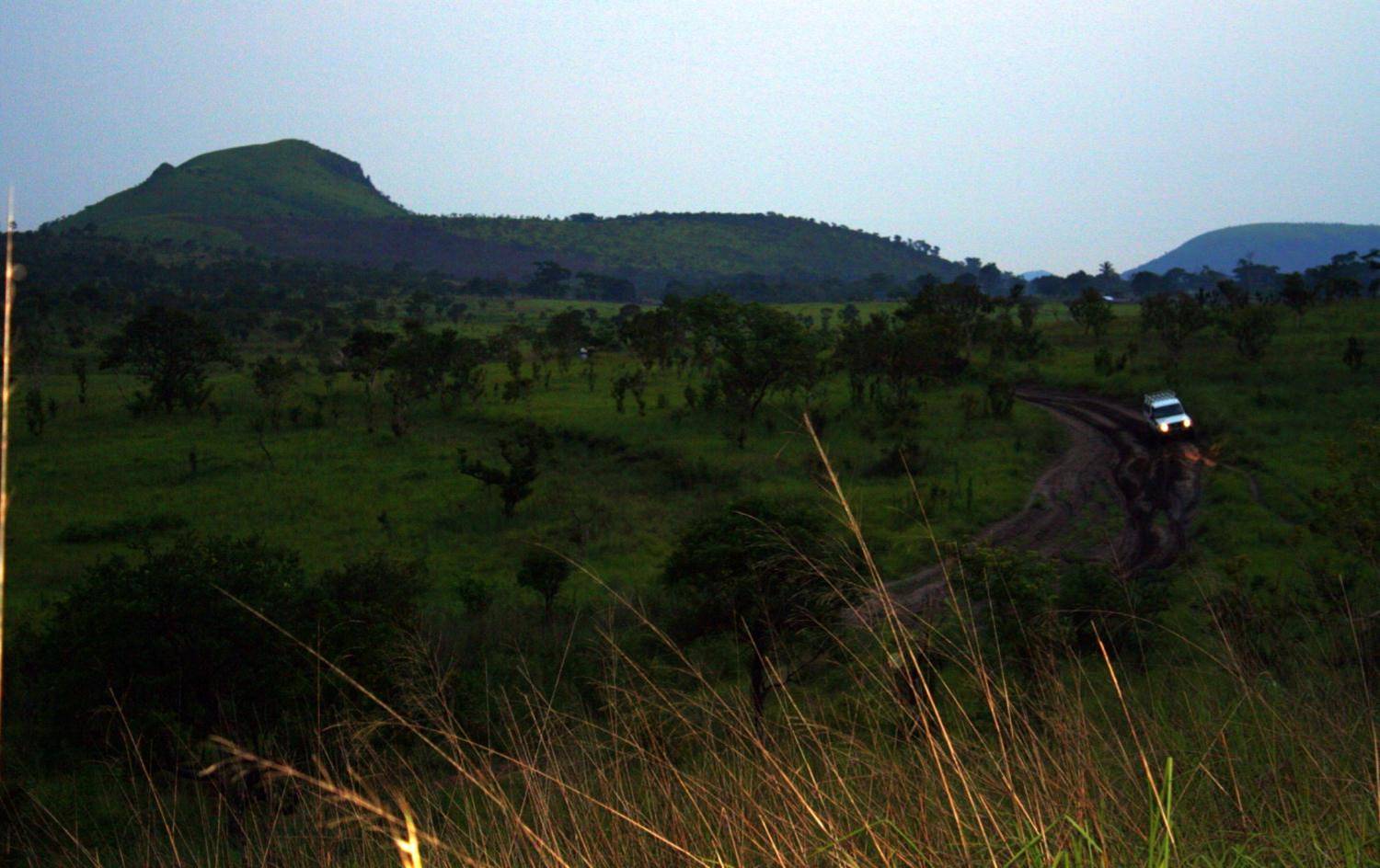The Democratic Republic of the Congo is battling ongoing poliovirus transmission. Together with Pakistan and Chad, the Democratic Republic of the Congo is currently on top of the worldwide polio chart, with 87 cases as of 22 November 2011.
The country has successfully stopped poliovirus transmission before and it can do it again. Supplementary immunization activities are held to ensure that each child receives polio vaccine. The country's government is committed to doing what it takes, and each local coordination committee follows the national polio eradication emergency plan set by the Ministry of Public Health. As a result, poliovirus transmission has been reduced to two pockets on either side of the country.
"You have a responsibility to protect your children. They can’t defend themselves if you don’t." At the launch of the vaccination round, a polio-survivor addresses parents and authorities, asking them to immunize their children against the disease that has greatly affected his life.
The mother of a boy who was paralysed by polio in July urges the public to vaccinate their children. Governments and polio eradication partners work with communities to foster a climate of confidence and understanding. When pockets of refusals are encountered, traditional and religious leaders are engaged to help ease parents' fears.
Mabatu, six years old, has been paralysed since he fell sick with polio two months ago. In countries with little infrastructure, polio can affect a child's chances of contributing to household chores, finding work and getting married, creating extra pressure on already overburdened families.
All the vaccines for the160,000 inhabitants of Popokabaka are stored in two fridges which are fuelled by petrol. Every morning, two staff-members at Popokabaka’s health centre fill 800 ice-bricks to help keep the precious vaccine at zero degrees Celsius during the day.
Vaccine carriers preserve the oral polio vaccine throughout the day, aiming to maintain a temperature of zero degrees Celsius in a country where the average temperature is around 40. Each vial of vaccine has a temperature-sensitive label which changes colour if the vaccine is not kept sufficiently cool.
Access to Popokabaka is possible only by dirt track. Four-wheel-drives are a luxury, but even they are not exempt from getting stuck during the rainy season. Poliovirus transmission in the Democratic Republic of the Congo is now limited to just two pockets - one pocket centred in Bas Congo/Bandundu provinces in the country's west, and one pocket in the east, in the sparsely populated north of Katanga province. Popokabaka, the site of several recent polio cases, is in Bandundu province.
Hygiene and polio are closely linked. In the Democratic Republic of the Congo, barely half of the population has access to safe drinking water.
Less than one in seven in the Democratic Republic of the Congo live in acceptable hygiene conditions, and open-air defecation is the norm in rural areas. Given that polio is transmitted through the faecal-oral route, inadequate sanitation facilitates the spread of the virus.
A social mobilization worker calls out to the population of Popokabaka. During polio vaccination campaigns, social mobilization workers travel through towns, using a megaphone to inform parents of the importance of vaccination and when their children can be vaccinated.
A vaccinator administers oral polio vaccine to a small boy. Because it comes in liquid form, oral polio vaccine can be administered by anyone, even volunteers. More than 2.5 million children and 225,000 adults across the country are targeted during November's vaccination drive.
After vaccinating a woman, a health worker marks her left pinky finger with indelible ink. This enables health workers to keep track of who has received the vaccine and who has been missed.
The mobile vaccination team marks each family’s door with chalk, indicating the number of inhabitants who have been vaccinated. If necessary, they return later to vaccinate anyone who was missed.
Every polio campaign is an event. Children who are asked about the vaccine proudly show that they have been immunized.
During each campaign, supervisors follow the mobile vaccination teams to verify that all conditions for a successful campaign have been fulfilled. A mixed team of workers from WHO and UNICEF discuss the round with a local health agent.
A UNICEF car on the way back to Popokabaka after a day of supervision in the field. Every campaign day finishes with a coordination meeting where challenges and results are discussed and problems solved. With high quality polio vaccination campaigns, the Democratic Republic of the Congo can rid itself of polio once more.
